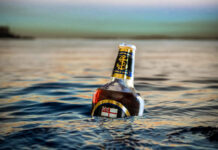
From new government guidelines on alcohol consumption and the lower drink drive limit to new year ‘detox’ endeavours and a proposed levy on sugary drinks, soft drinks – particularly healthy soft drinks – have occupied a more prominent place in the spotlight in the past 12 months.
And whether or not you agree with any of the circumstances that have put them there, the increased focus on healthy soft drinks is said to represent a major opportunity for on-trade operators.
Producers and suppliers say they have taken further steps to introduce a broader range of soft drinks to meet the demands of an increasingly health-conscious public.
And they say that by stocking and promoting these products, on-trade operators stand to benefit.
Britvic, the firm behind J2O and Pepsi, said it is committed to continuing to produce lower calorie and lower sugar soft drinks, adding that consumer health issues “are becoming a greater concern” globally.
“We believe that all of our drinks can be enjoyed as part of a balanced diet and healthy lifestyle, but recognise that collaboration and shared responsibility can offer the best long term solutions,” said Britvic in its most recent sustainable business report.
“We are committed to taking a leading role in the soft drinks industry in inspiring and encouraging people to make informed choices to live healthier and more active lives.”
Britvic has pledged to cut the average calories per 250ml serve across its portfolio by 20% by 2020, with plans to further expand its low and no-sugar range of drinks.
“Our low and no-sugar product portfolio is growing in response to consumer demand and we have committed to ensuring 60% of new products will be lower-sugar or nutritionally enhanced,” the firm said.
Maurice Newton of CBL Drinks, the firm behind water brand Perfectly Clear and mixer range 1870, agreed that consumers have become more health conscious when choosing drinks.
“We are a nation newly obsessed with our health, and today’s clued-up customer is becoming increasingly concerned with healthier food and drink options,” said Newton.
“The fight against unhealthy products resulted in the decline of several food and drink categories in 2015, with sugar-laden soft drinks proving to be one of the major casualties.”
Newton said this trend has led to growth in the low and no-sugar soft drink market, and he predicts this trend will continue.

“Publicans should look to prioritise soft drinks and mixers containing little or no sugar, particularly following the festive period,” he said.
Amy Burgess of Coca-Cola Enterprises agreed that as people have become “increasingly health conscious”, demand for soft drinks containing reduced calories and sugar has increased, adding that publicans should ensure they have enough variety in this area to satisfy demand.
“For all consumers, choice is key, and licensees should look to stock a variety of lighter options, whilst offering diet variants of their best-selling drinks where possible,” she said.
Adrian Troy, head of marketing at Irn-Bru and Strathmore parent company AG Barr, said it is important that outlets provide a range of lower calorie soft drinks, “but with no compromise on flavour”.
Troy suggested that publicans who get this right could cash in, with the low and reduced calorie drinks category showing “strong growth”.
“Consumer demand is definitely increasing and that is expected to continue,” said Troy.
“Licensees should ensure they offer choice of low calorie soft drinks options, alongside regular variants to offer consumers choice and maximise this sales opportunity.”
The advice was echoed by Graham Carr-Smith, creator of flavoured water drink Qcumber, who said customers will be impressed by a range that sets itself apart from the off-trade.
“By and large, consumers drinking soft drinks in the on-trade are on the look-out for something a bit interesting; they might be avoiding alcohol for a variety of reasons, but they don’t want to be treated like second-class citizens,” said Carr-Smith.
“Of course have a leading cola, a recognisable lemonade and a well-known juice drink as options, but just don’t make them the only options.”



















